It is critical for Africa’s economic development to reduce its reliance on imported goods and reduce the use of fossil fuels and materials made from fossil fuels. Doing so would bring benefits including cost savings at existing companies, cleaner living environments for local communities, and new jobs and economic opportunities from the new generation of emerging circular enterprises.
Below we outline some of the emerging circular economy projects and companies already up and running across the continent:
Biowaste to compost
Green Africa Youth Organisation
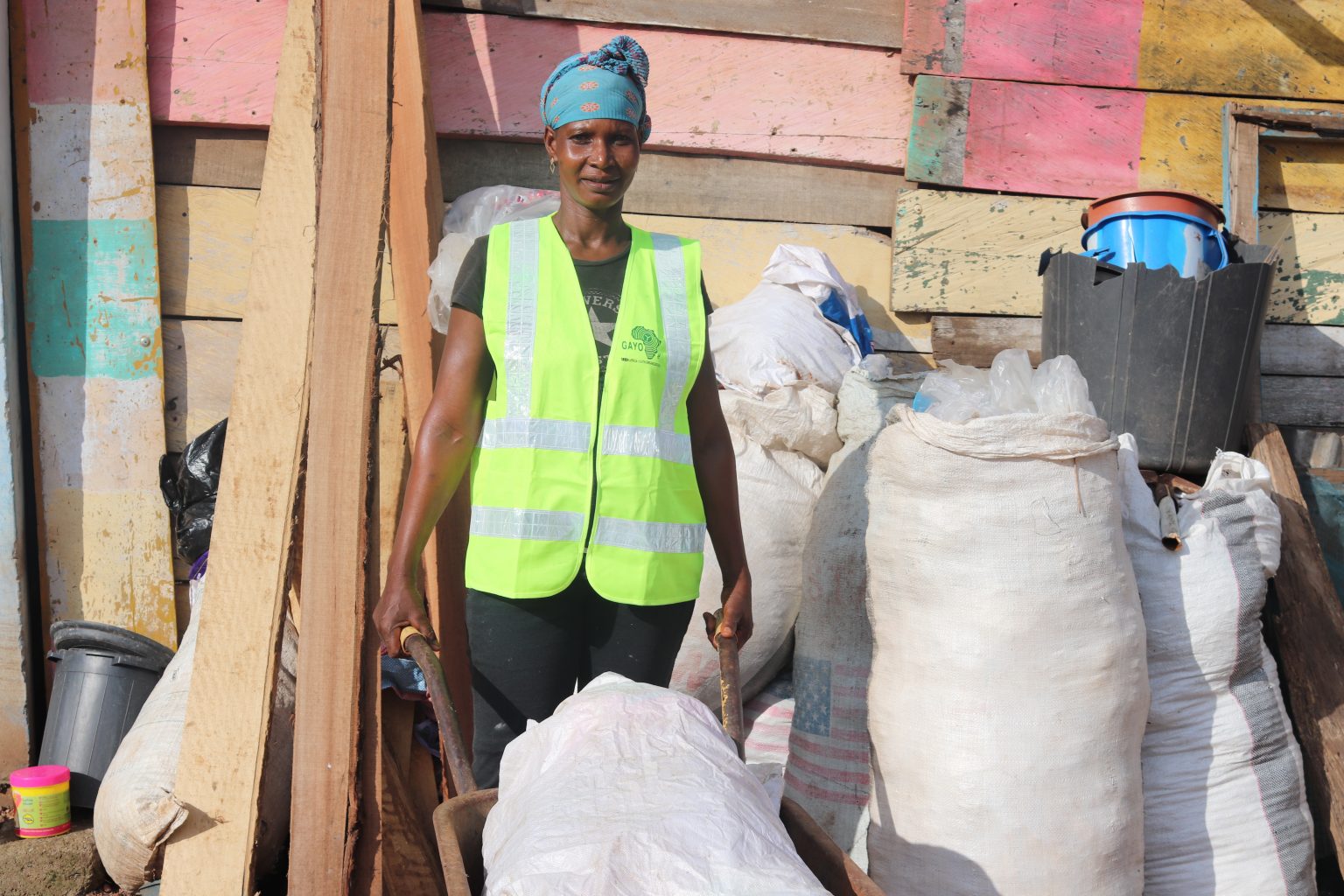
Green Africa Youth Organization (GAYO), is a youth-led gender-balanced advocacy group that focuses largely on environmental sustainability and community development.
Their Sustainable Community Project (SCP) in Adansi South District of Ghana is the first community-led circular economy waste management project in Ghana. They aim to create a local circular economy model by mid-2020 that can be replicated in other communities. They want to create a zero waste model in the long term.
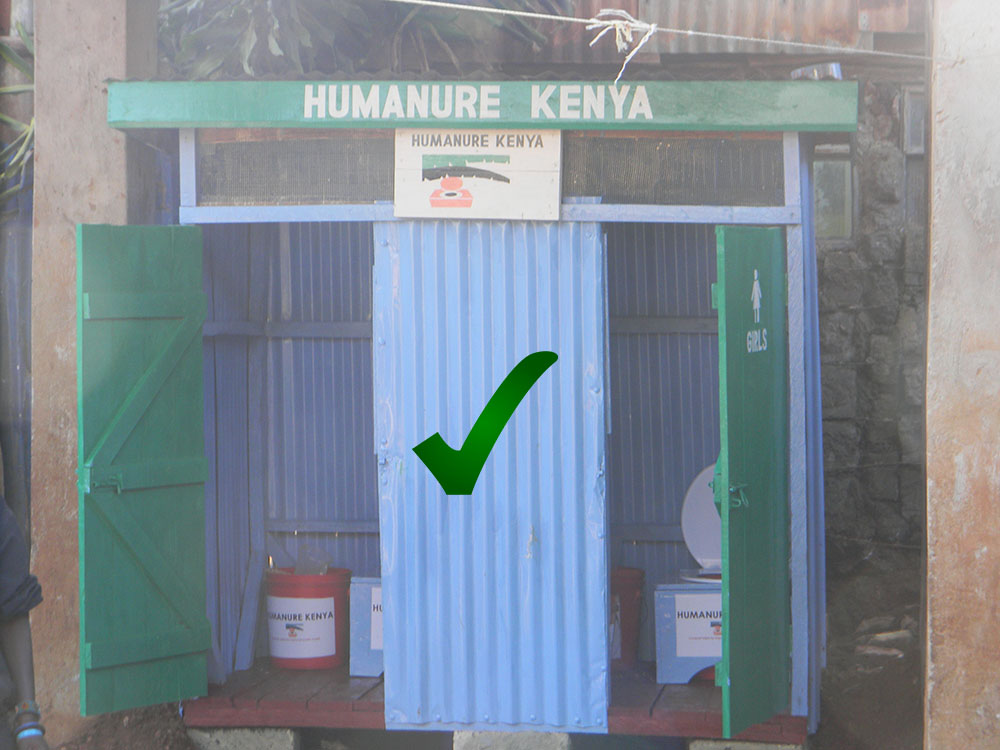 Humanure Kenya is a non-profit organization that gives skills, training and dedicated to the teaching and promotion of ecological sanitation and composting.
Humanure Kenya is a non-profit organization that gives skills, training and dedicated to the teaching and promotion of ecological sanitation and composting.
Right now, too many people in Kenya are suffering from easily preventable diseases such as cholera and dysentery. These illnesses can be stopped at the household level, by introducing home toilets, health education on good sanitation practices. Humanure Kenya is a community based organisation working with rural communities to build compost toilets in people’s homes and schools.
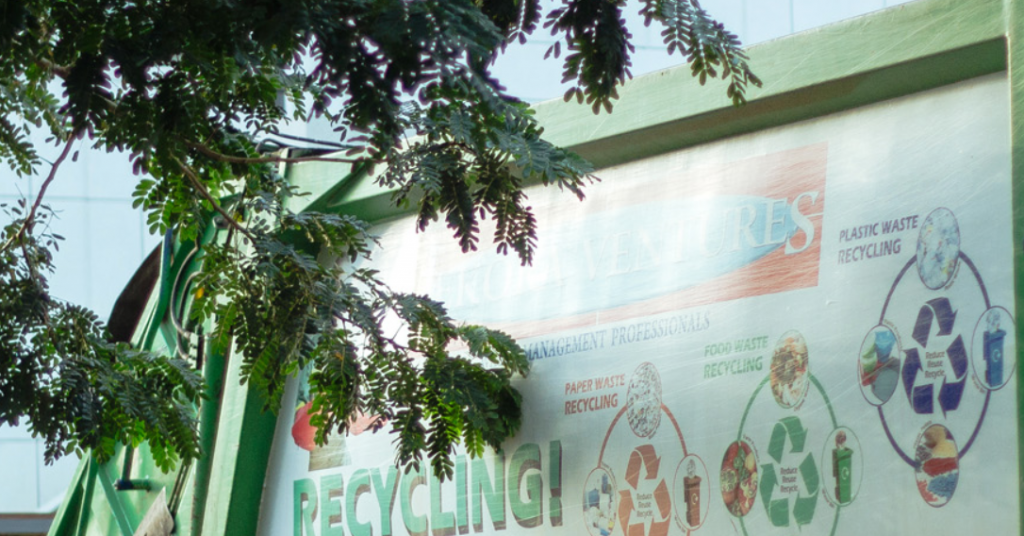 Jeroka Venture’s mission is to deliver operationally efficient, cost-effective and affordable services and products, Through application of appropriate technology and innovation, to our cherished clients, By creating wealth through resource recovery And promoting a sustainable environment.
Jeroka Venture’s mission is to deliver operationally efficient, cost-effective and affordable services and products, Through application of appropriate technology and innovation, to our cherished clients, By creating wealth through resource recovery And promoting a sustainable environment.
 The Waste Transformers was started by Lara van Druten. Lara has one goal: to create a flourishing business that inspires others to change the way that they deal with organic (food) waste and to establish a business model able to balance financial, social and environmental returns. Today, the Waste Transformers are the recognized partner of choice for those with the ambition and courage to realize real, circular economies around organic waste.
The Waste Transformers was started by Lara van Druten. Lara has one goal: to create a flourishing business that inspires others to change the way that they deal with organic (food) waste and to establish a business model able to balance financial, social and environmental returns. Today, the Waste Transformers are the recognized partner of choice for those with the ambition and courage to realize real, circular economies around organic waste.
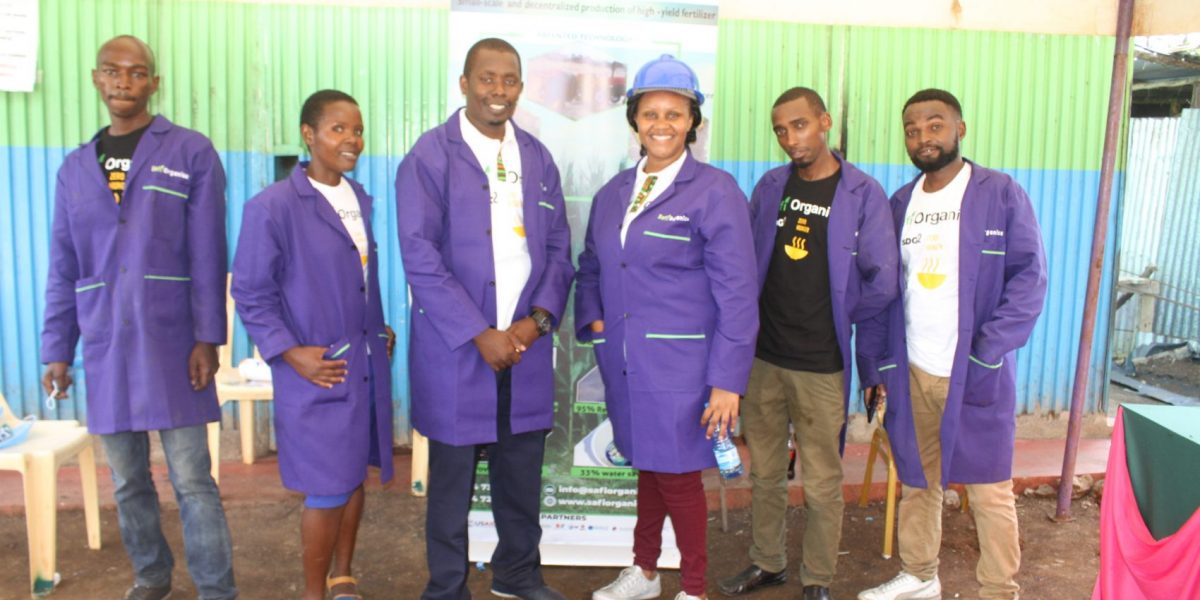 Farmers across Africa are often paying two to five times more than the rest of the world for fertilisers. Kenyan-based Safi Organics produces fertilisers locally by turning farm waste into a product called Safi Sarvi. An organic fertiliser that is cheap and safe. Safi Sarvi has boosted crop yields by an average of 30% and has helped restore soil PH.
Farmers across Africa are often paying two to five times more than the rest of the world for fertilisers. Kenyan-based Safi Organics produces fertilisers locally by turning farm waste into a product called Safi Sarvi. An organic fertiliser that is cheap and safe. Safi Sarvi has boosted crop yields by an average of 30% and has helped restore soil PH.
AfricaLive spoke with Samuel Rigu, co-founder of Safi organics. Read it here.

Organic waste is the most problematic waste stream because it produces methane in the landfill, and can pollute groundwater when dumped in the landfill. They have a big dream to divert all South Africa’s organic waste from the landfill so that it can be properly composted, and thereby become a valuable soil conditioner. During this journey, they aim to demonstrate a more fuel efficient way of collecting waste, while educating that waste has value, so that other entrepreneurs can be inspired.
E-Waste

AST Recycling is one of the only ISO 9001, 14001, 27001 and 45001 standards certified E-Waste and Scrap Catalytic Converter Recycling companies in South Africa. At AST Recycling, they are passionate about protecting the environment. Through their services, they aim to help companies and consumers become more sustainable, grow the e-waste recycling industry in Africa and contribute to a circular economy.
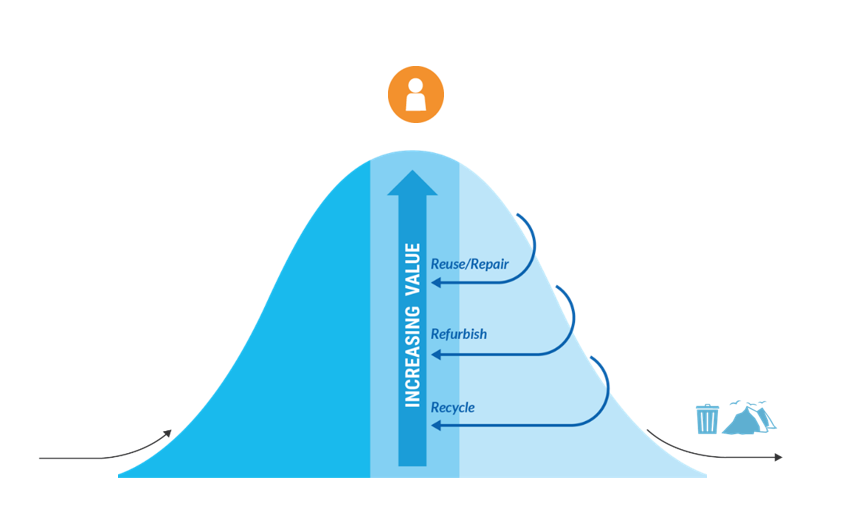 Close the Gap is an international social enterprise that aims to bridge the digital divide by offering high-quality, pre-owned computers donated by European and international companies to educational, medical and social projects in developing and emerging countries.
Close the Gap is an international social enterprise that aims to bridge the digital divide by offering high-quality, pre-owned computers donated by European and international companies to educational, medical and social projects in developing and emerging countries.
Close the Gap collects decommissioned computers from companies and arranges for other organizations to clean the hard disks and then check and configure the hardware according to the requirements of its end-users. The computers are then shipped to the destination country by sea or air transport, to support educational, medical, entrepreneurial and social projects. All the projects are demand-driven and impact oriented initiatives.
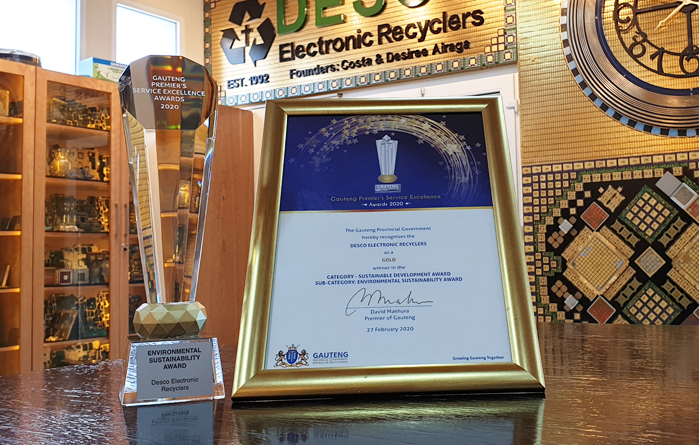 Desco Electronic Recyclers is an established, environmentally responsible and accredited recycler of electronic waste situated in Kempton Park. Their services are offered to the public, small/medium enterprises (SME) and large corporations.
Desco Electronic Recyclers is an established, environmentally responsible and accredited recycler of electronic waste situated in Kempton Park. Their services are offered to the public, small/medium enterprises (SME) and large corporations.
They also provide services to government, educational and medical institutions.
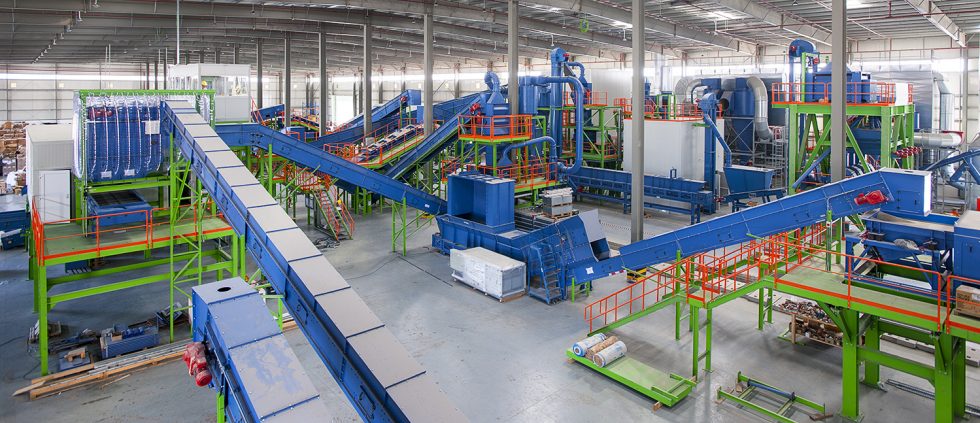 Enviroserve has grown to become one of the largest electronics recyclers and processors in the world and a trusted name in the industry.
Enviroserve has grown to become one of the largest electronics recyclers and processors in the world and a trusted name in the industry.
From initial inquiry to final disposal, they provide full service to countries, governments, multinationals, OEMs, commercial and industrial customers by providing the following service departments:
- Electronic Waste Recycling
- IT Asset Disposition (ITAD) & Refurbishment
- Brand Protection (Special Waste)
- Refrigerant Gas Recycling
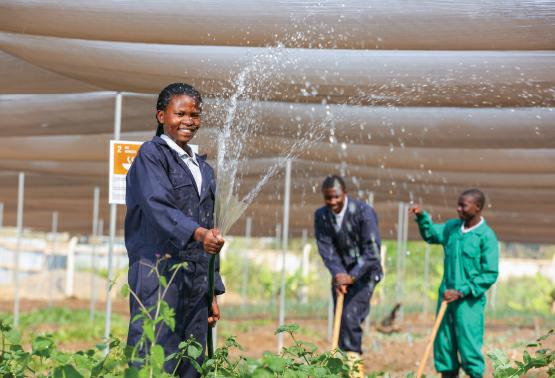
The initiative aims to collect all types of old electronics including (but not limited to) radios, phones, laptops, batteries and chargers and related accessories, and hands them in to a recycling partner – Waste Electrical and Electronic Equipment Centre (WEEE).
As part of their integrated waste management programme they have collected over 1,200 tonnes of e-waste working in partnership with the Waste Electrical and Electronic Equipment Centre in Nairobi, Ministry of Environment, the Communications Authority and the National Environment Management Authority.
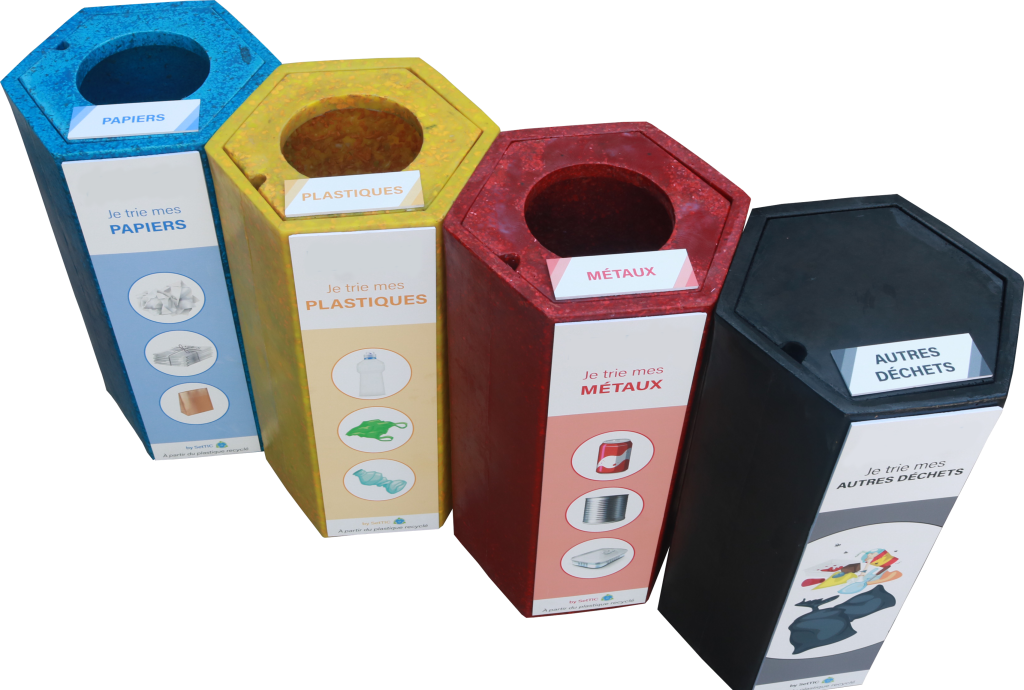 SetTIC has diversified its activities by offering an integrated waste management service. SetTIC thus supports its customers in the management of their waste with an integrated management offer for all types of waste.
SetTIC has diversified its activities by offering an integrated waste management service. SetTIC thus supports its customers in the management of their waste with an integrated management offer for all types of waste.
This proposal allows the customer to have a single point of contact for the management of all their waste (from on-site sorting to recycling), while ensuring the traceability of the various processing channels at national and international level.
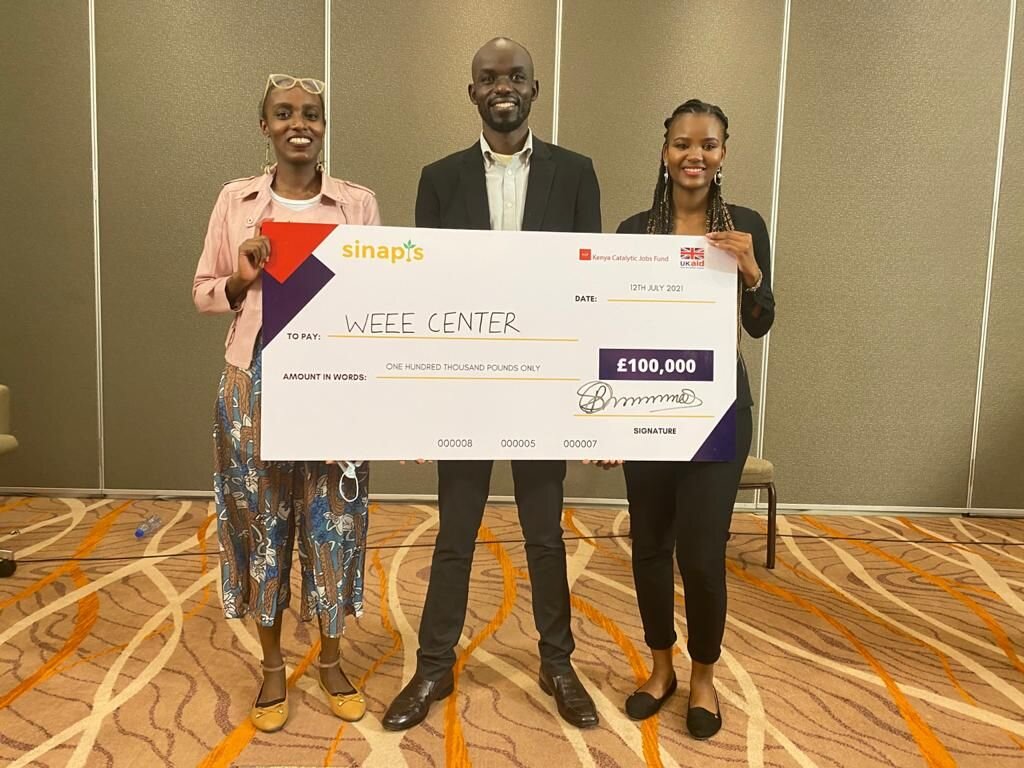
Waste Electrical and Electronic Equipment Centre (WEEE Centre) offers the services of awareness creation (training) and safe disposal of electrical and electronic waste (e-Waste); in accordance with NEMA waste regulations and WEEE regulations that are protective to both the environment and public health. As a fundamental core value, The WEEE Centre runs an environmentally friendly operation. They are committed to the efficient, safe and conservative disposal of electrical and electronic waste.
Plastics
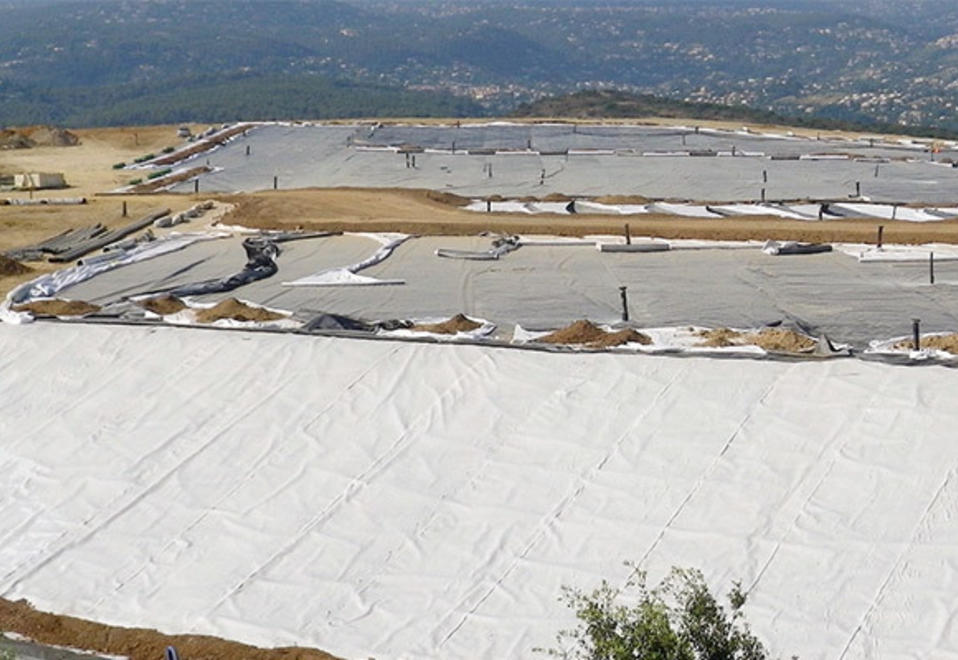 In the Ivory Coast, waste collection has yet to be properly structured and organized. In Abidjan, the country’s largest city, AfricaWaste has developed an efficient plastic waste recovery sector. Every day, in Côte d’Ivoire Abidjan produces 288 metric tons of plastic waste, including a large number of plastic bottles.
In the Ivory Coast, waste collection has yet to be properly structured and organized. In Abidjan, the country’s largest city, AfricaWaste has developed an efficient plastic waste recovery sector. Every day, in Côte d’Ivoire Abidjan produces 288 metric tons of plastic waste, including a large number of plastic bottles.
In the absence of a real waste management policy, the recycling rate is just 5%. All the other bottles end up in open dumps, polluting the air, soil, streams, and even children’s playgrounds. To reduce this pollution, AfricWaste has decided to set up a structured plastic waste collection and recovery sector in the country’s economic capital. Starting with PET bottles (polyethylene terephthalate).
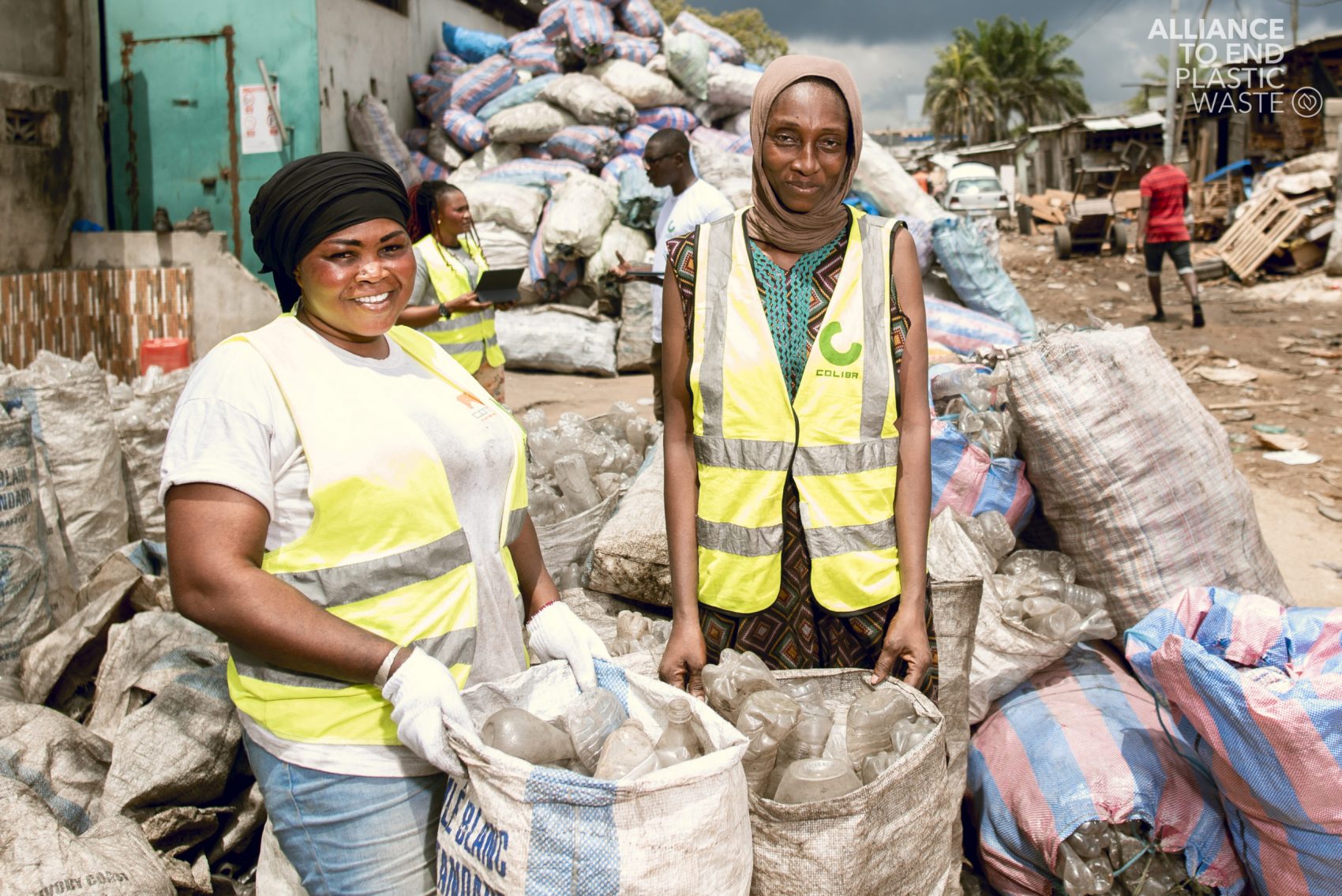 Coliba is founded on gender equality. They have the same requirements and offer the same working or salary conditions to both sexes. The main vision has always been to create jobs for disadvantaged populations who are mainly women and young people with little education. The ambition is to industrialise the production of rPET flakes in West Africa. Currently, they have a monthly capacity of 150 tons per month.
Coliba is founded on gender equality. They have the same requirements and offer the same working or salary conditions to both sexes. The main vision has always been to create jobs for disadvantaged populations who are mainly women and young people with little education. The ambition is to industrialise the production of rPET flakes in West Africa. Currently, they have a monthly capacity of 150 tons per month.
Libe Green Innovation is an innovative social enterprise founded in 2018.
The mission is to achieve zero waste and provide employment opportunities in Tanzania, through collecting, processing and upcycling plastics, as well as engaging the community through talks and workshops on environmental sustainability.
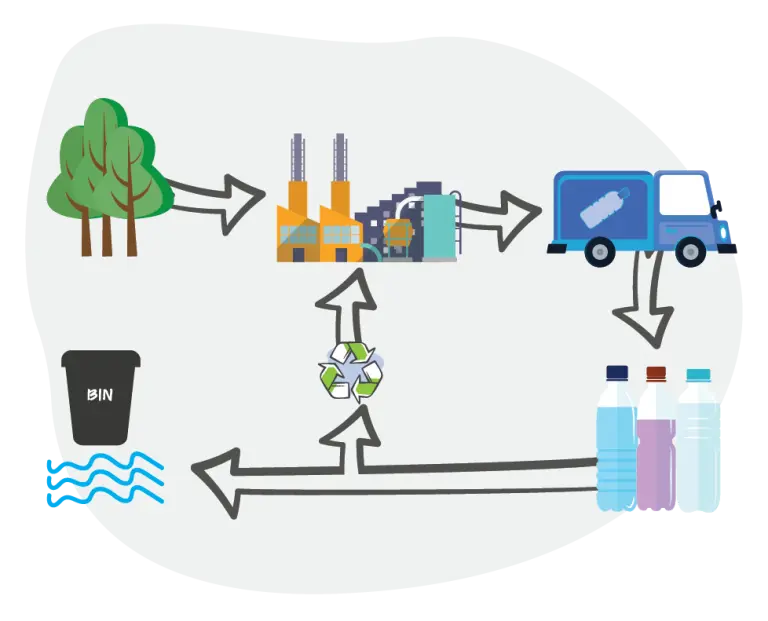 It is estimated that Accra, Ghana generates over 22,000 tons of plastic waste annually, but only 2% gets recycled. Reaval’s goal is to increase the percentage of plastic waste recycled to 50% by 2025.
It is estimated that Accra, Ghana generates over 22,000 tons of plastic waste annually, but only 2% gets recycled. Reaval’s goal is to increase the percentage of plastic waste recycled to 50% by 2025.
They use technology to appropriate value to plastic waste, establish sorting centres and set up buy-back schemes which provide motivation to increase collection thereby creating empowerment and earning opportunities for members of the general and waste picker community.
 Trashy Bags Africa, is a social enterprise making upcycled eco-friendly bags from discarded drinking water sachets that litter the streets of Accra, Ghana’s capital city, in West Africa. Trashy Bags Africa is leading the way in sustainable development in Africa, having collected and recycled over 30 million plastic sachets since we started in 2007.
Trashy Bags Africa, is a social enterprise making upcycled eco-friendly bags from discarded drinking water sachets that litter the streets of Accra, Ghana’s capital city, in West Africa. Trashy Bags Africa is leading the way in sustainable development in Africa, having collected and recycled over 30 million plastic sachets since we started in 2007.
Eco Brixs started in 2017 as the Masaka Recycling Initiative, at which point it focused on plastic recovery. After two years of operation, Andy realised more could be done to capture the value in plastics as well as support the local economy, and Eco Brixs was born.
In collaboration with universities and other experts they have researched how to transform the plastic. Now, they recycle seven types of plastics to make various products, such as an innovative plastic-sand composite paver, which has proven to be stronger, lighter and more durable than concrete. A series of other prototypes are in the pipeline.
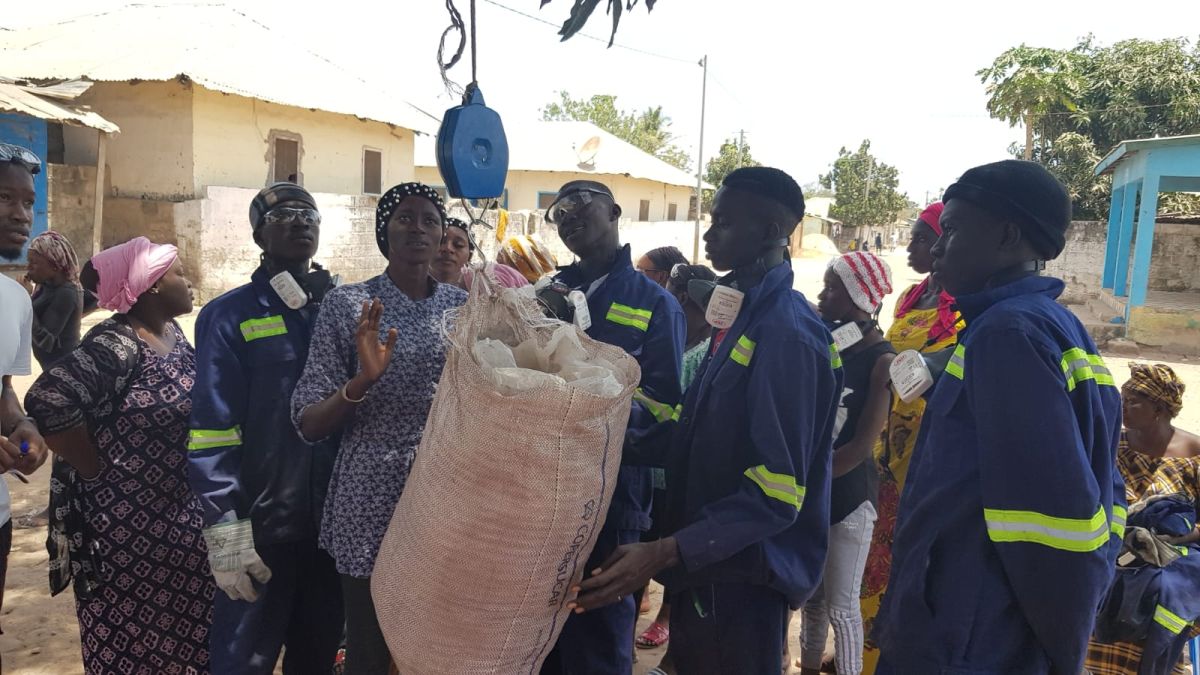 Plastic bags and wrap cause problems in the environment, blocking drains, harming livestock and causing dangerous smoke when burned.
Plastic bags and wrap cause problems in the environment, blocking drains, harming livestock and causing dangerous smoke when burned.
At Innovative Plastic Recyclers Gunjur they believe that everyone has the right to live in a healthy environment. They collect plastic waste and transform it into high quality products. They have a large workshop and a training centre in Gunjur.
MGA works with fast-moving consumer goods companies and third-party plastics manufacturers to three-way offtake agreements for high-quality post-consumer recycled content, helping partners to realize their sustainable packaging goals by accessing ethically sourced and locally produced material. They have strategic partnerships with Unilever, Dow and TOTAL.
Construction
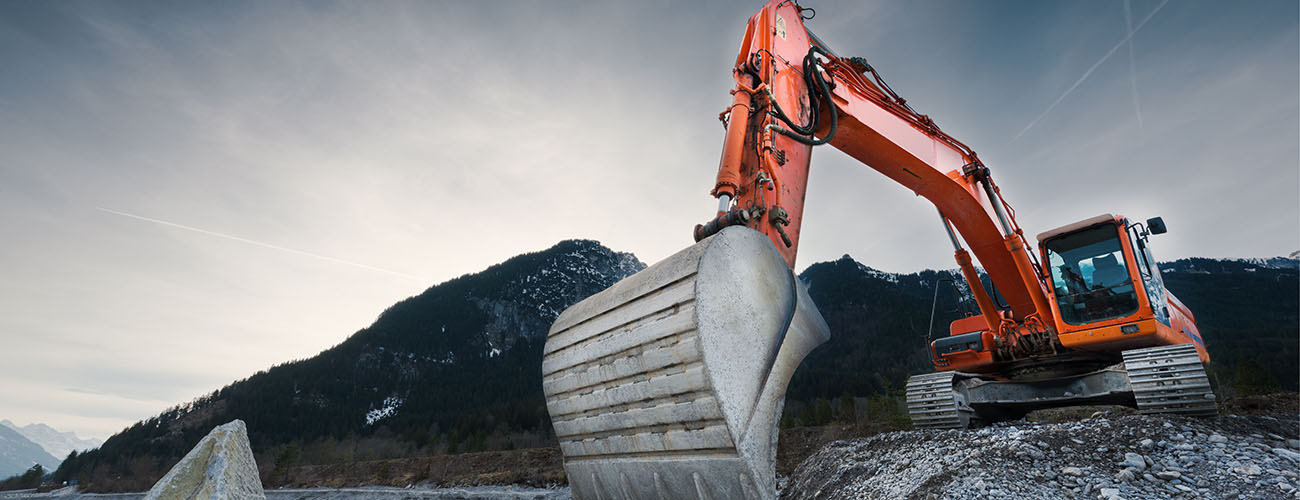 Millions of cubic meters of demolished and excavated building material are sent to landfill sites across South Africa on an annual basis. Aggreg8 has identified an opportunity to intervene and recycle this material into high quality products for the building industry.
Millions of cubic meters of demolished and excavated building material are sent to landfill sites across South Africa on an annual basis. Aggreg8 has identified an opportunity to intervene and recycle this material into high quality products for the building industry.
Aggreg8 contracts with demolishers, excavators and developers, receive their waste (previously destined for the landfills) and reprocess this “waste” into reusable construction products such as sub-base material, concrete mix, building sand, filling and a crushed sand for concrete product manufacturing.
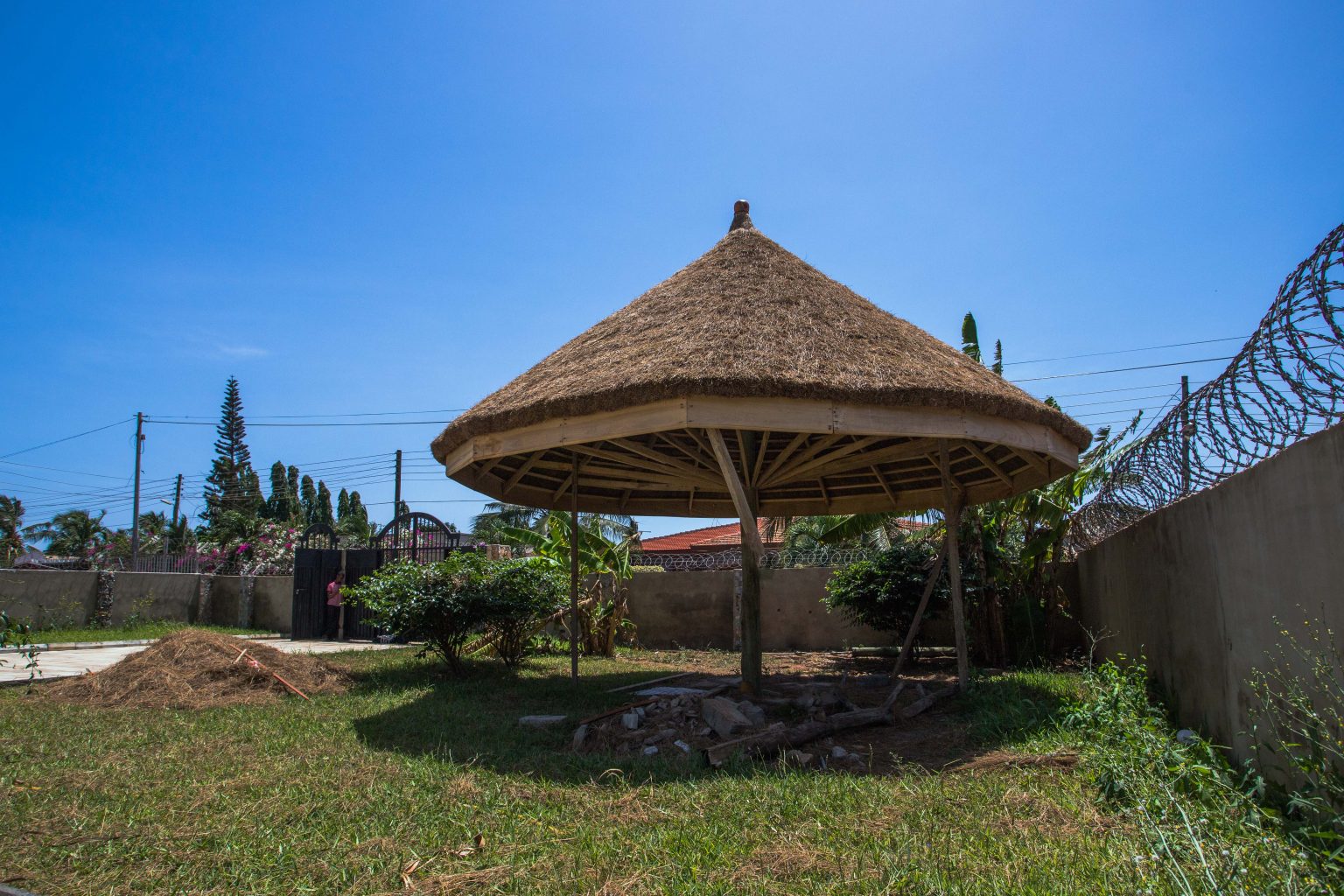 BFU is a general construction company. Additionally, BFU specialises in the fabrication of summer huts, bespoke kitchens and office partitions.
BFU is a general construction company. Additionally, BFU specialises in the fabrication of summer huts, bespoke kitchens and office partitions.
BFU, as part of its policy, RE-uses waste-wood, in the form of pallets, in its manufacturing processes. This is to help create an environment that is free of waste wood and to reduce the rate of deforestation.
BFU was selected into the maiden Orange Corners programme in Ghana, an initiation of the Embassy of the Kingdom of Netherlands.
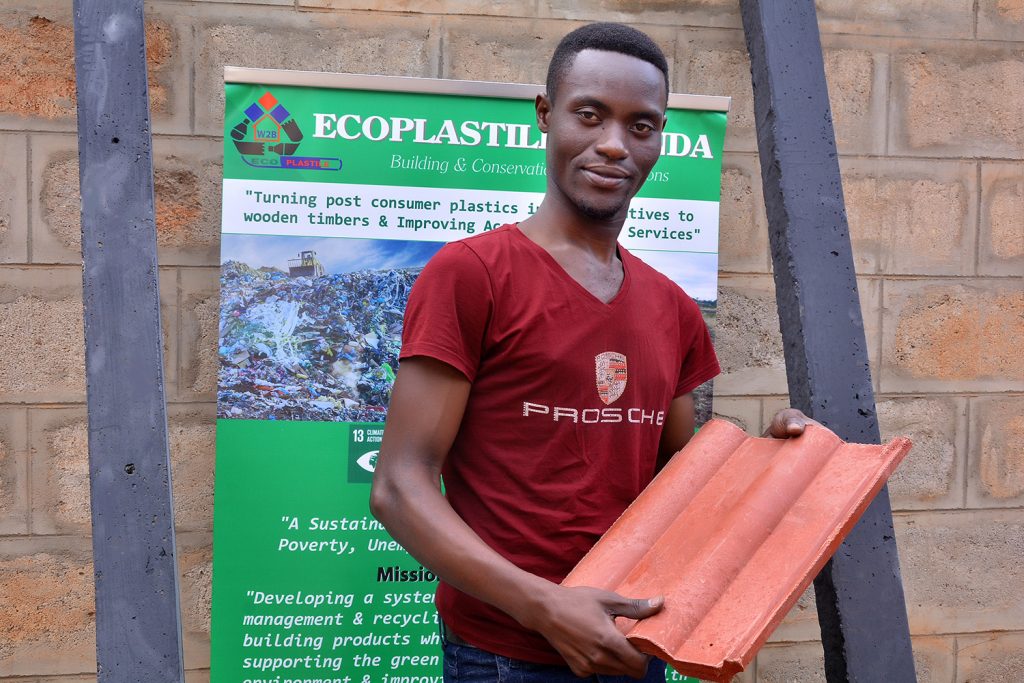 Ecoplastile is a waste management, construction and a social enterprise that addresses the challenges of urban waste management (plastic pollution), indecent housing, chronic youth unemployment, deforestation and climate change while improving access to education and health services.
Ecoplastile is a waste management, construction and a social enterprise that addresses the challenges of urban waste management (plastic pollution), indecent housing, chronic youth unemployment, deforestation and climate change while improving access to education and health services.
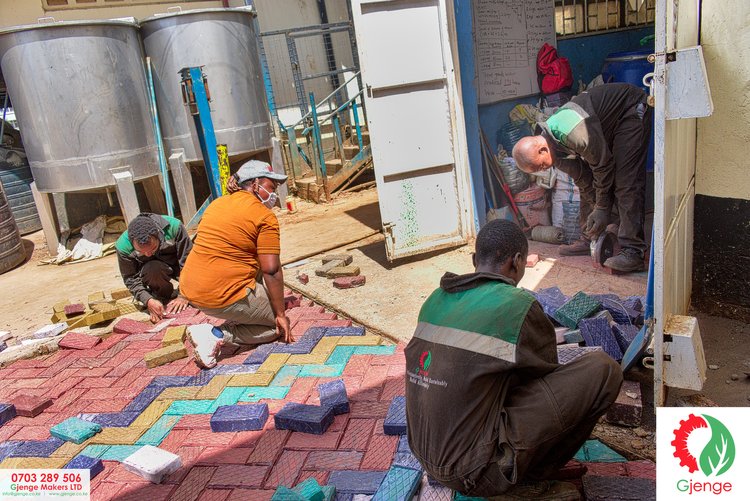 Gjenge is a community-oriented organization whose aim is to address the need for sustainable and affordable alternative construction materials in Kenya and the Continent. Their initial output is innovations derived from recycled plastics to produce paving blocks, paving tiles, and manhole covers.
Gjenge is a community-oriented organization whose aim is to address the need for sustainable and affordable alternative construction materials in Kenya and the Continent. Their initial output is innovations derived from recycled plastics to produce paving blocks, paving tiles, and manhole covers.
The team ideated a rollout of a plastics collection company that would sort and sell plastic waste to other recycling companies. Having collected more waste faster than the recycling companies could uptake, this original idea was pivoted, and a decision was made to do value addition to these plastics hence the decision to manufacture alternative building products emerged. Thus, Gjenge Makers was born.
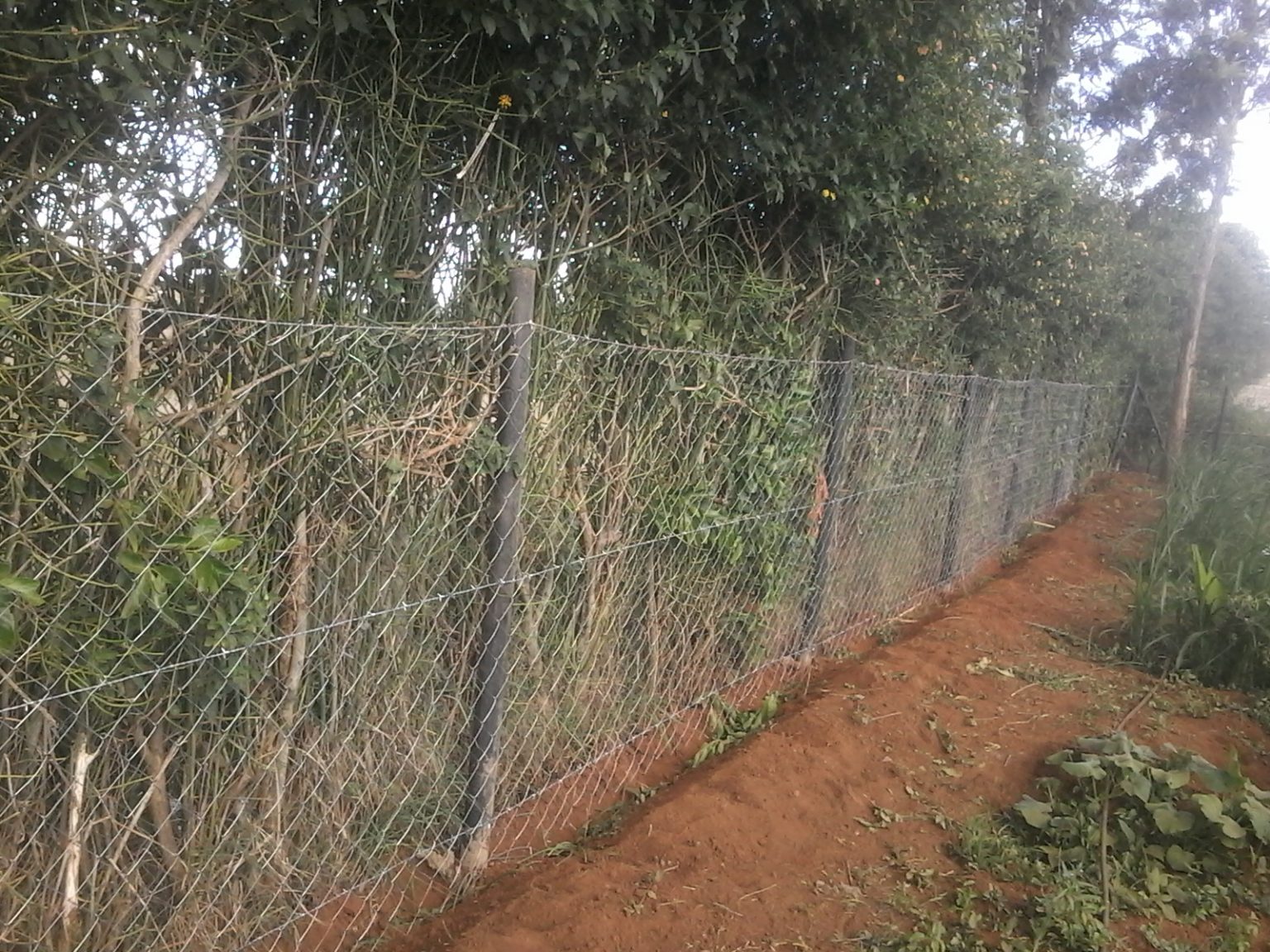 Green Pavers provides affordable, efficient and environmentally friendly building solutions designed to transform building practices in Africa. They distribute building hardware made from recycled waste plastic and light weight concrete that are affordable, durable and stronger.
Green Pavers provides affordable, efficient and environmentally friendly building solutions designed to transform building practices in Africa. They distribute building hardware made from recycled waste plastic and light weight concrete that are affordable, durable and stronger.
 Zelij Invent is the 1st Moroccan manufacturer of ecological construction products which offers you a wide variety of attractive and durable finished products. The Sustainable Development Goals, the Environment and our Employees are at the heart of their priorities.
Zelij Invent is the 1st Moroccan manufacturer of ecological construction products which offers you a wide variety of attractive and durable finished products. The Sustainable Development Goals, the Environment and our Employees are at the heart of their priorities.
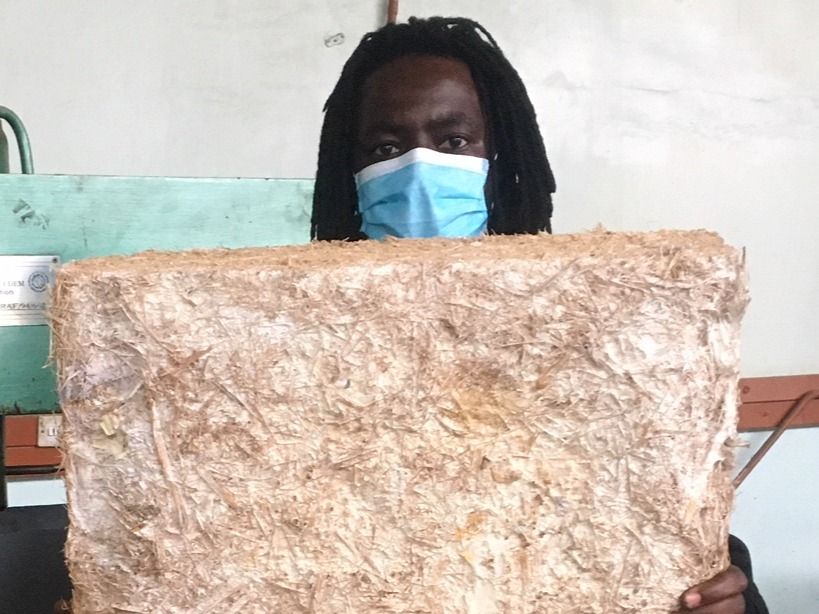 Kenya-based MycoTile produces locally manufactured, alternative building materials using agricultural waste and fungal mycelium.
Kenya-based MycoTile produces locally manufactured, alternative building materials using agricultural waste and fungal mycelium.
MycoTile offers a high performance and cheaper alternative to traditional building materials. They use a carbon negative process to bond agricultural waste (such as maize cobs, coffee husks, coconut coir and rice husks) with mushroom mycelium. The product is denatured through heat treatment in order to inhibit mycelium growth. Their first product was suspended ceiling panels, which have superior acoustic performance and fire-retardant properties compared to the available alternatives. The fire-retardancy is naturally enhanced by the chitin present in mycelium.
Bio-waste to feed

At Agrimax, they have confidence in using innovation to create long lasting solutions.
Through the introduction of Insects; they have a target to provide unquestionable, adaptable and cost-efficient alternative sources of animal protein for meal and feed, to keep a sustainable framework, they have to breed high quality insects in dependable yields.
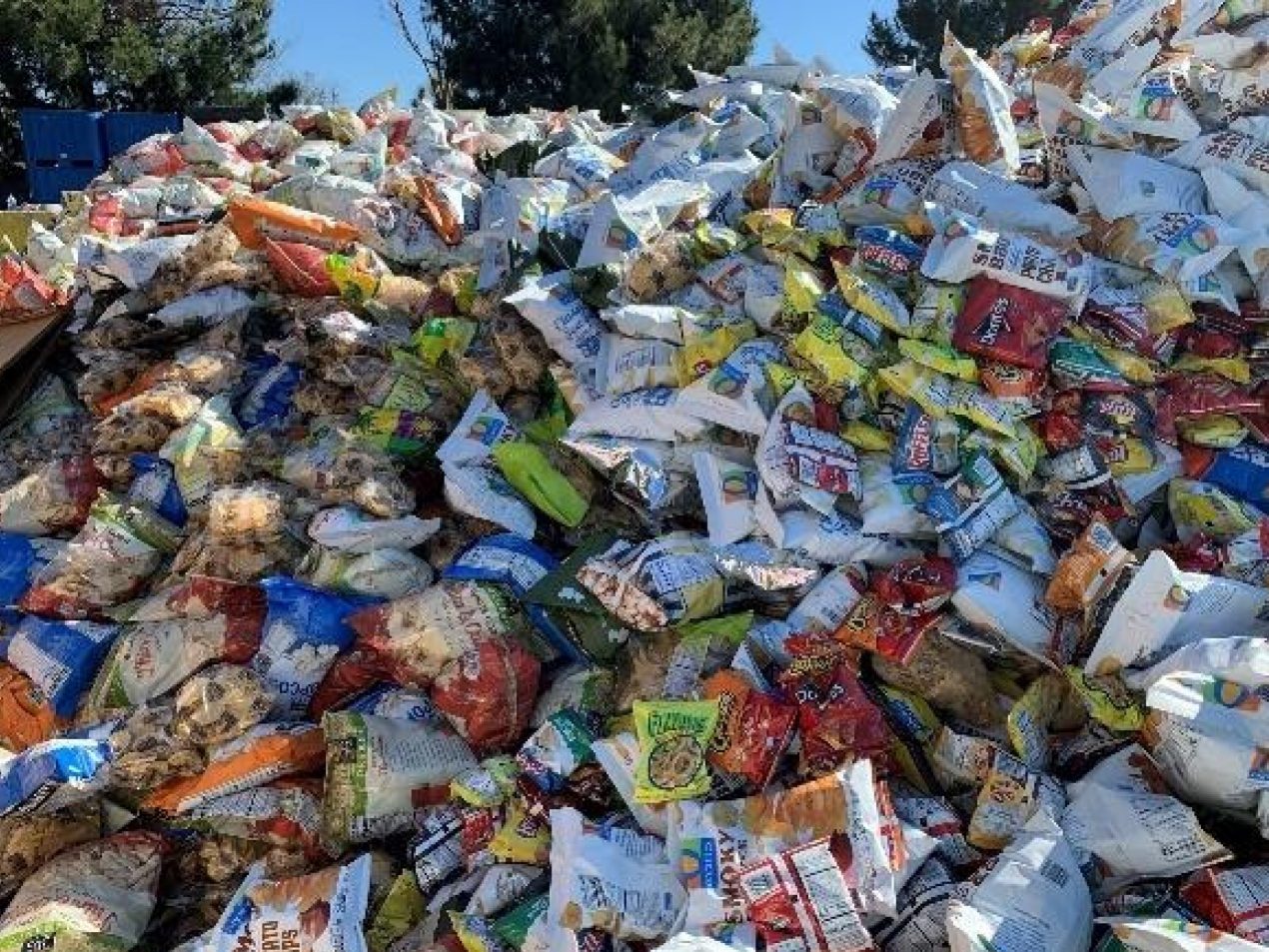 Organic waste is a major challenge that PreZero is positioned to solve. According to the USDA, it’s estimated that 30-40% of food is wasted in the US. When organic waste goes to landfills, it decomposes improperly and produces methane, a greenhouse gas with 80 times the warming power of CO2. PreZero is developing technology on an industrial scale that will instead turn this food waste into sustainable animal feed ingredients and soil nutrient products that support the circular economy.
Organic waste is a major challenge that PreZero is positioned to solve. According to the USDA, it’s estimated that 30-40% of food is wasted in the US. When organic waste goes to landfills, it decomposes improperly and produces methane, a greenhouse gas with 80 times the warming power of CO2. PreZero is developing technology on an industrial scale that will instead turn this food waste into sustainable animal feed ingredients and soil nutrient products that support the circular economy.
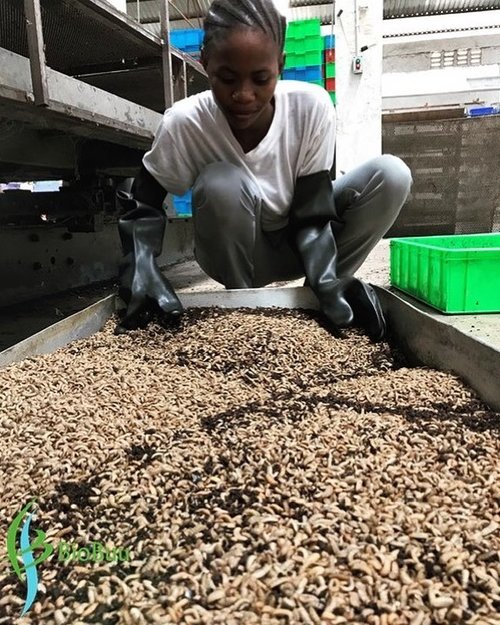 Biobuu Limited is an East African insect company. It was registered in Tanzania after three years of research on the breeding and feeding behaviors of black soldier flies.
Biobuu Limited is an East African insect company. It was registered in Tanzania after three years of research on the breeding and feeding behaviors of black soldier flies.
The company focuses on a factory model that produces high protein chicken and fish feed as well as organic compost. The model is labor intensive and perfect for Africa. After developing their first factories in Tanzania and Kenya they are now looking to open factories across the continent.
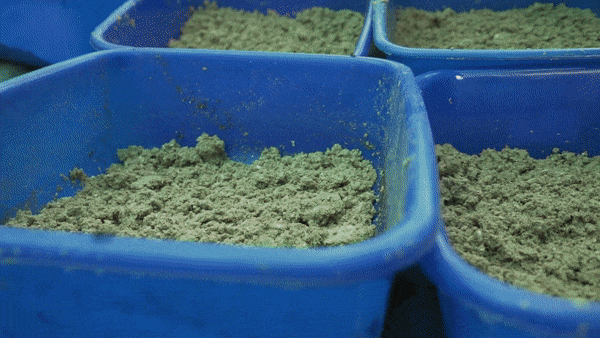 Proteen feeds urban organic-waste to Black Soldier Fly larvae. After a short rearing period these larvae can be harvested, dried and processed into high-quality protein feed for livestock production.
Proteen feeds urban organic-waste to Black Soldier Fly larvae. After a short rearing period these larvae can be harvested, dried and processed into high-quality protein feed for livestock production.
Proteen tackles two global problems: lack of sustainable waste management and lack of high quality protein feed. They do this while employing local youth. With this solution they can directly reduce carbon emissions and improve the livelihood of their clients and communities.

In 2009 at MIT, David Auerbach, Lindsay Stradley, and Ani Vallabhaneni
were tasked with developing a solution to a poverty challenge facing 1 billion people or more around the world. Harnessing their experiences working in the developing world and in growing cities, they developed a full value chain approach to addressing the sanitation crisis, offering a sustainable solution for urban slums.
With that project, Sanergy was born. On November 19, 2011 – World Toilet Day – Sanergy opened the first Fresh Life Toilet in Mukuru Kwa Njenga slum. Sanergy is comprised of a dedicated team with diverse backgrounds, but one shared vision for urban slums. Today, they have over 400 employees, 60% of whom live in the communities they serve.
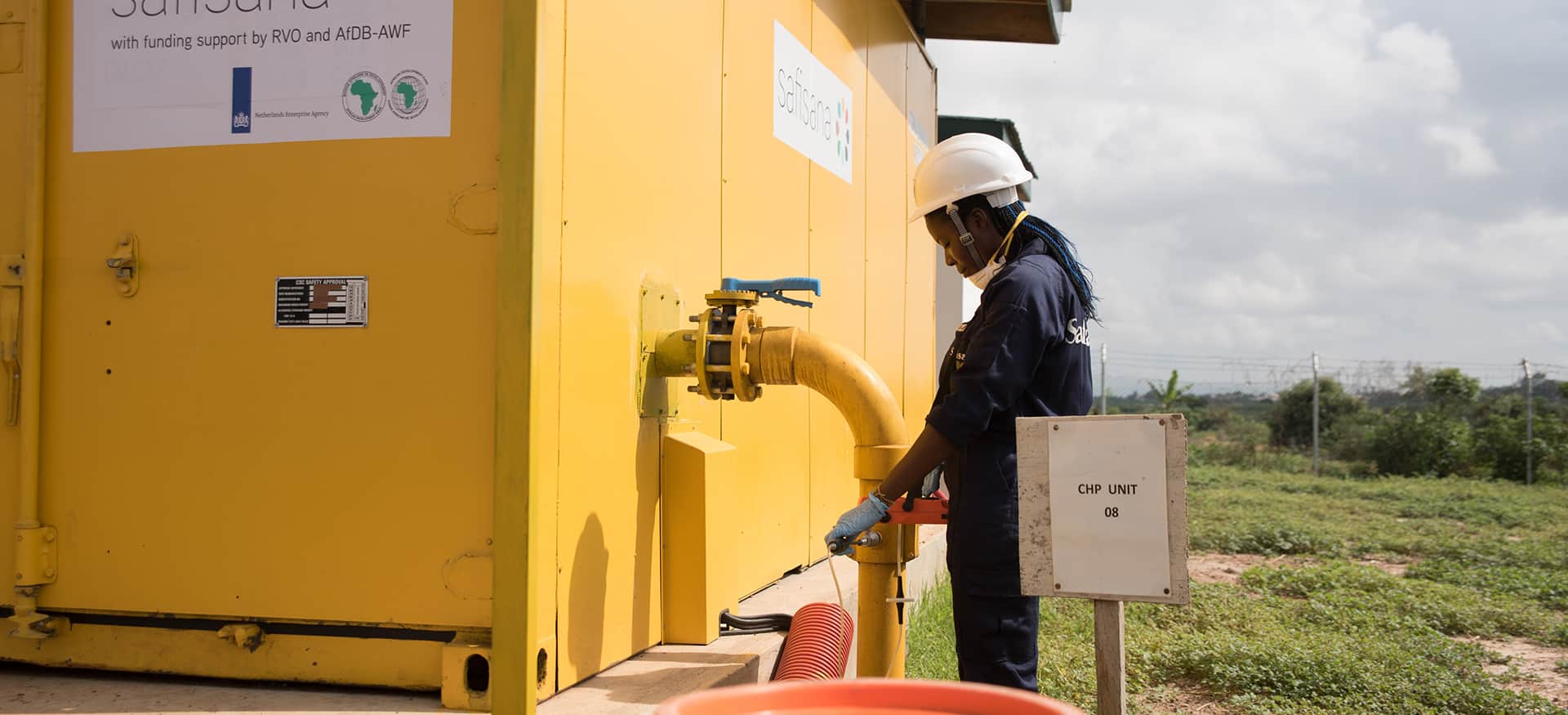 At Safisana they see waste as a resource to create value. They have developed a circular business model for local waste treatment for governments, utilities and food processing industries. Their recycling plants turn organic waste and faecal sludge into high value products: renewable energy, organic fertilizer and irrigation water.
At Safisana they see waste as a resource to create value. They have developed a circular business model for local waste treatment for governments, utilities and food processing industries. Their recycling plants turn organic waste and faecal sludge into high value products: renewable energy, organic fertilizer and irrigation water.
By adopting an holistic approach, they are able to offer governments, utilities and food processing industries a financially-affordable solution to manage their waste problems, and at the same time create highly sustainable multiple social, economic and environmental impacts to improve public health, climate, employment, food security/ safety scenarios for those communities who are ill-served by traditional utility provisions.
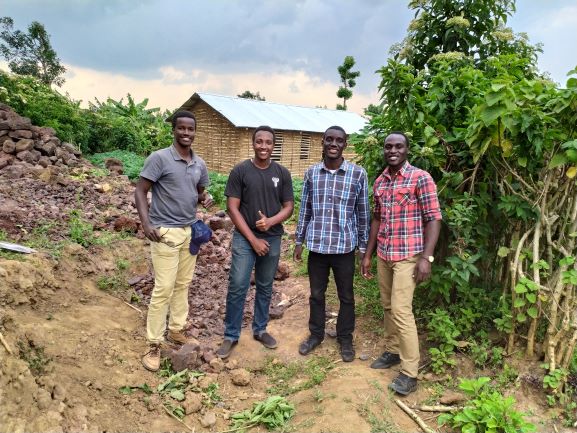
The future of sustainable food packaging on the African continent is here
Hya bioplastics created bio-based and 100% home compostable food packaging that provides a cost competitive alternative to petroleum-based plastics. They use cassava starch and pulped fibers from banana pseudo stem as our key raw materials to make a range of food packaging including fruit and vegetable trays, takeaway food boxes and disposable plates.
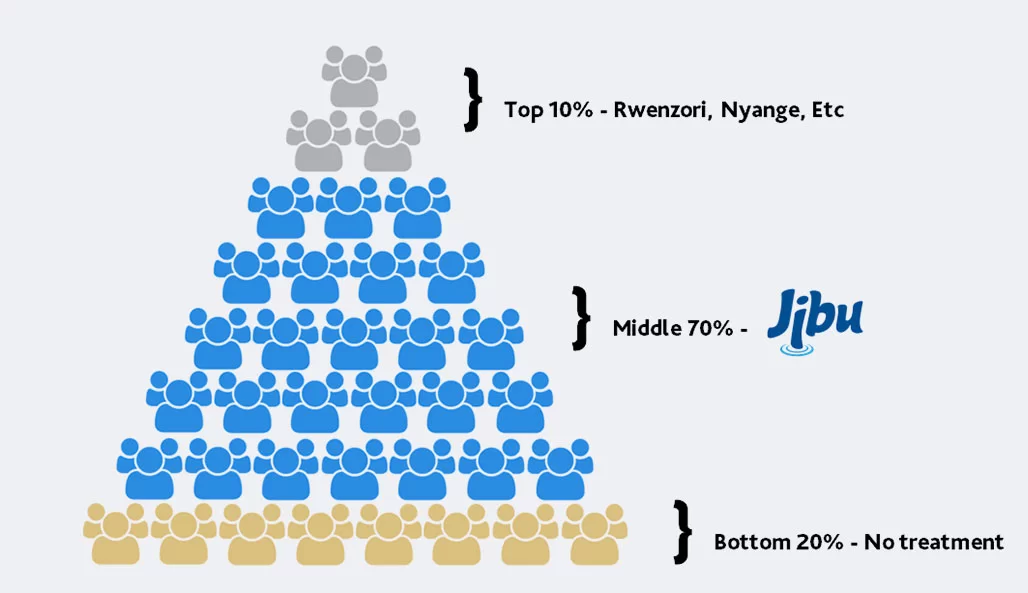
Jibu has launched many successful franchisees in Africa serving thousands of customers on a daily basis in Kenya, Rwanda, Uganda, Tanzania, DRC, Zambia and Burundi. These numbers grow every month.
While drinking water is their immediate focus, the ultimate goal is to launch a network of independent social entrepreneurs who, with high visibility retail storefronts and proven business acumen, are poised to revolutionize the African market and pave the way for developed world resources to become more effectively deployed in emerging markets.
 Ecodudu is a waste-to-value company. They use a proprietary innovation to recycle organic waste into high-protein animal feed and organic fertilizer using the black soldier fly. They harness insects (nature’s recycling agents) to address global issues which include waste management, demand for protein and environmental conservation.
Ecodudu is a waste-to-value company. They use a proprietary innovation to recycle organic waste into high-protein animal feed and organic fertilizer using the black soldier fly. They harness insects (nature’s recycling agents) to address global issues which include waste management, demand for protein and environmental conservation.
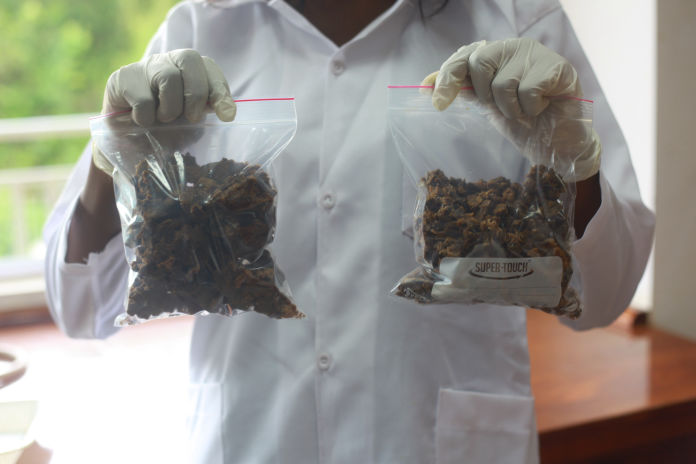 NovFeed converts food market waste to high protein feed and organic fertiliser with the help of black soldier flies, crickets and worms. The resulting insect-based product is an alternative to the soy and fishmeal that is used in producing commercial fish food. Black soldier flies and their larvae break down the organic waste and the maggots can be converted into high-protein fish food. The by-product can be converted into compost, with the help of worms.
NovFeed converts food market waste to high protein feed and organic fertiliser with the help of black soldier flies, crickets and worms. The resulting insect-based product is an alternative to the soy and fishmeal that is used in producing commercial fish food. Black soldier flies and their larvae break down the organic waste and the maggots can be converted into high-protein fish food. The by-product can be converted into compost, with the help of worms.
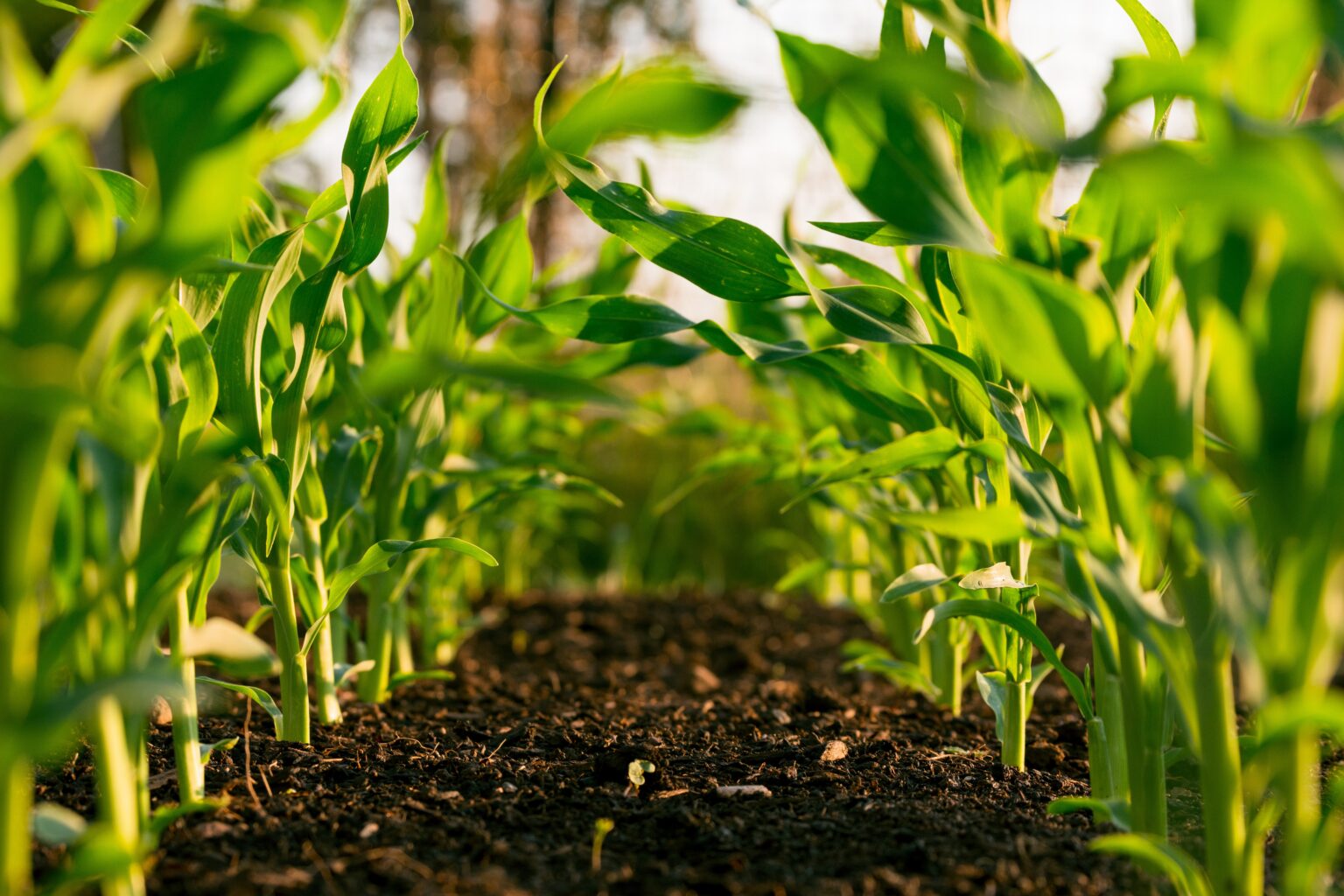 Sabon Sake are enabling the regeneration of our most valuable assets – soils and communities, by working closely with nature and clean technology to enable ecosystems function at optimum best and address climate change, one rural farming community at a time.
Sabon Sake are enabling the regeneration of our most valuable assets – soils and communities, by working closely with nature and clean technology to enable ecosystems function at optimum best and address climate change, one rural farming community at a time.
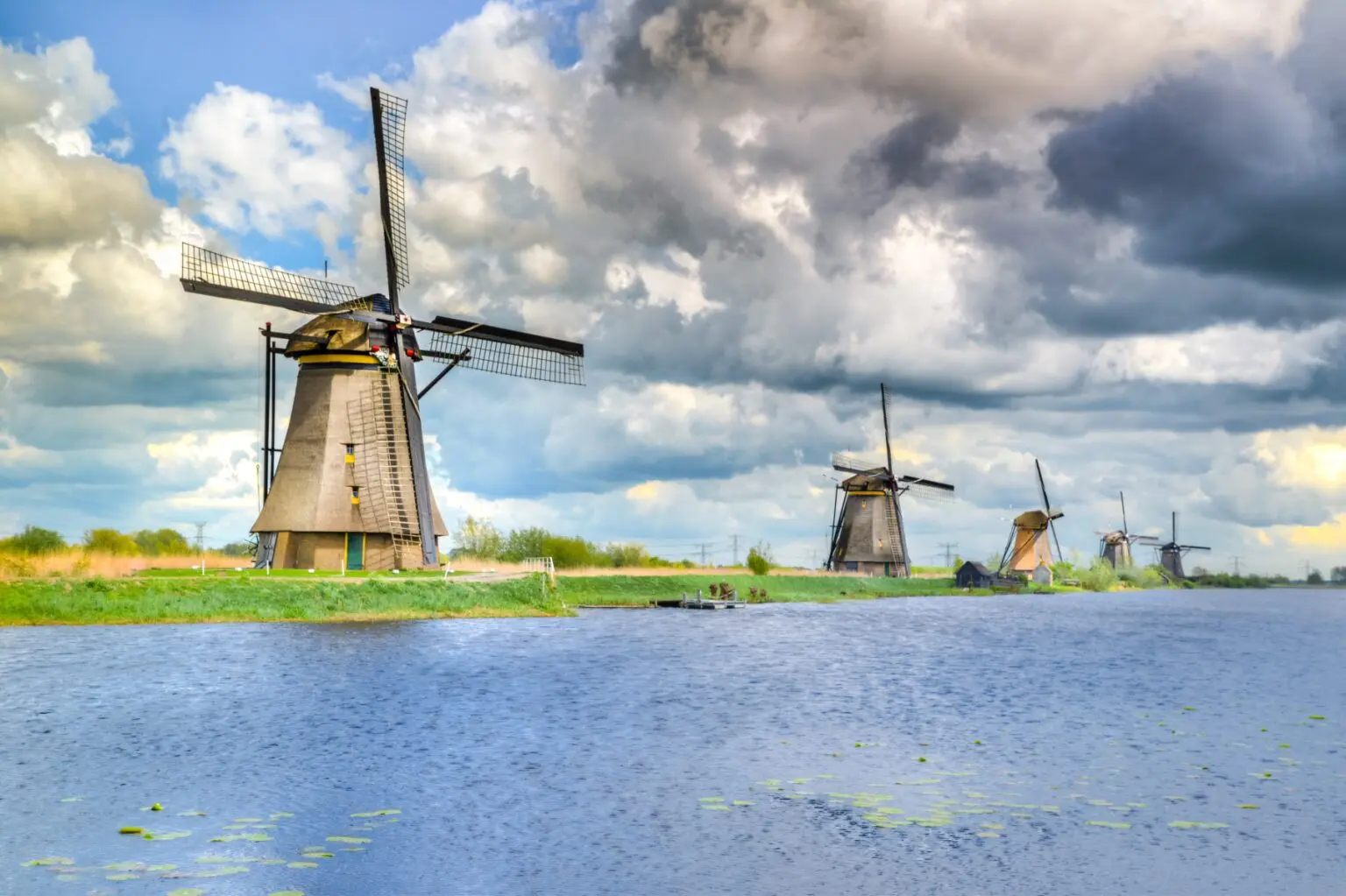 From sustainability reports and audits to EU funding trajectories to Green Marketing strategies, their goal is to help organizations make the transition to a circular economy that forms the basis of a sustainable society, that is what sustainability consulting means to us.
From sustainability reports and audits to EU funding trajectories to Green Marketing strategies, their goal is to help organizations make the transition to a circular economy that forms the basis of a sustainable society, that is what sustainability consulting means to us.
Want to know where your organization is now? Track the maximum level of sustainability and circularity obtainable? And what steps need to be taken to get there?
Textiles and fashion
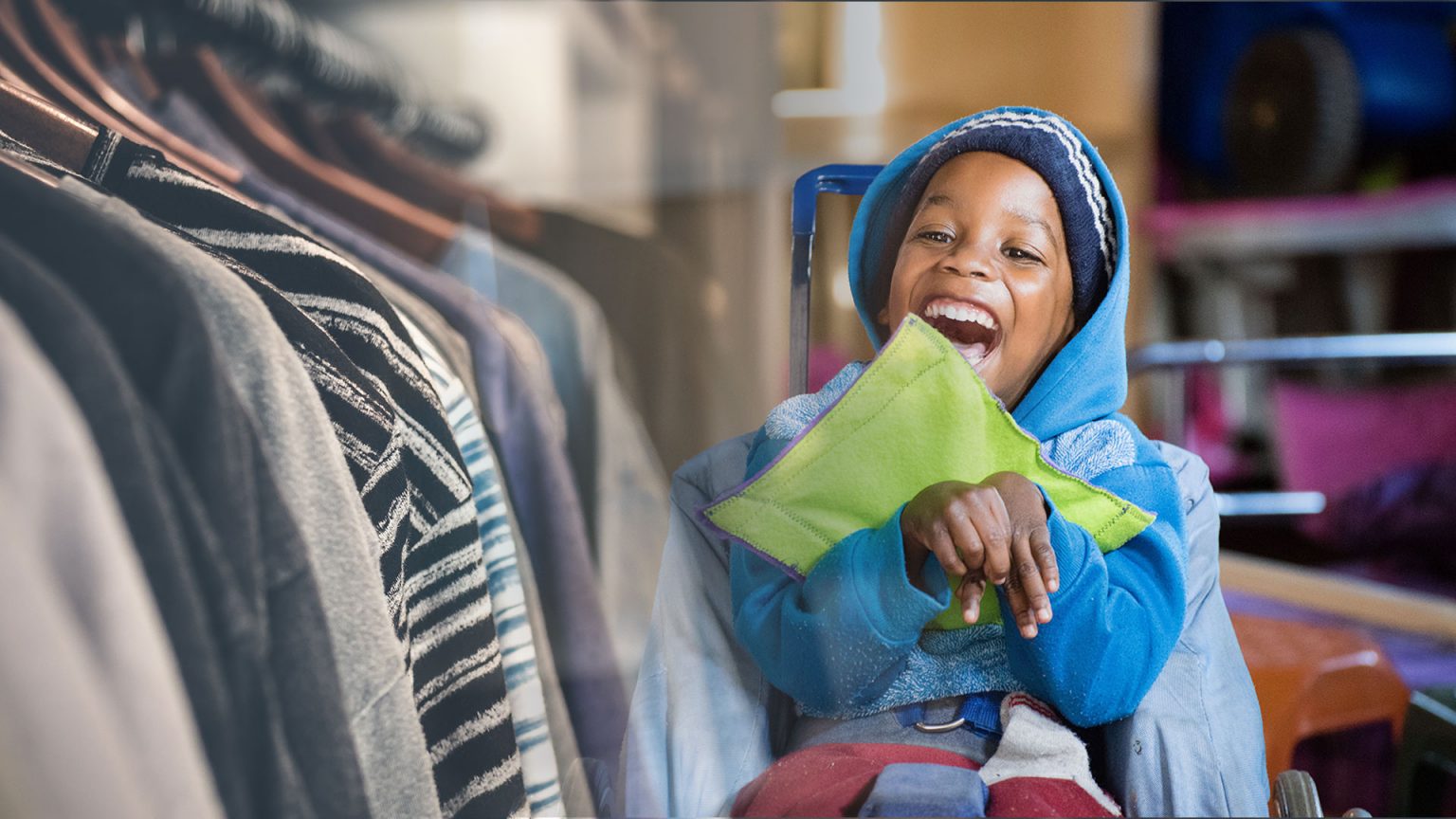 Clothes to Good (CTG) is a textile recycling and disability empowerment organisation. They find great joy in empowering people through what others categorise as “waste”. Through recycling they are able to:
Clothes to Good (CTG) is a textile recycling and disability empowerment organisation. They find great joy in empowering people through what others categorise as “waste”. Through recycling they are able to:
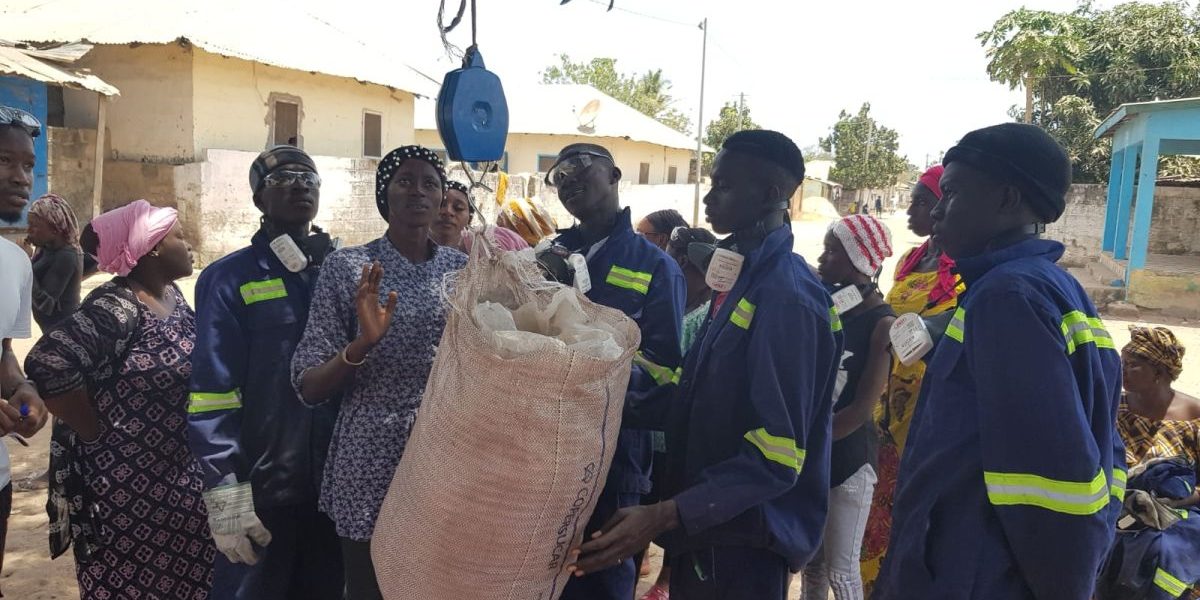
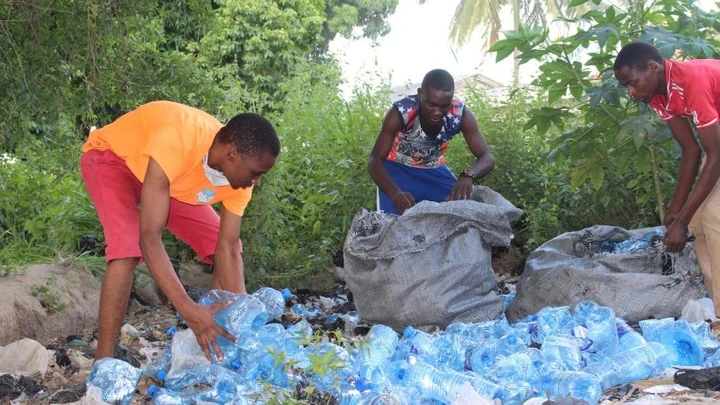
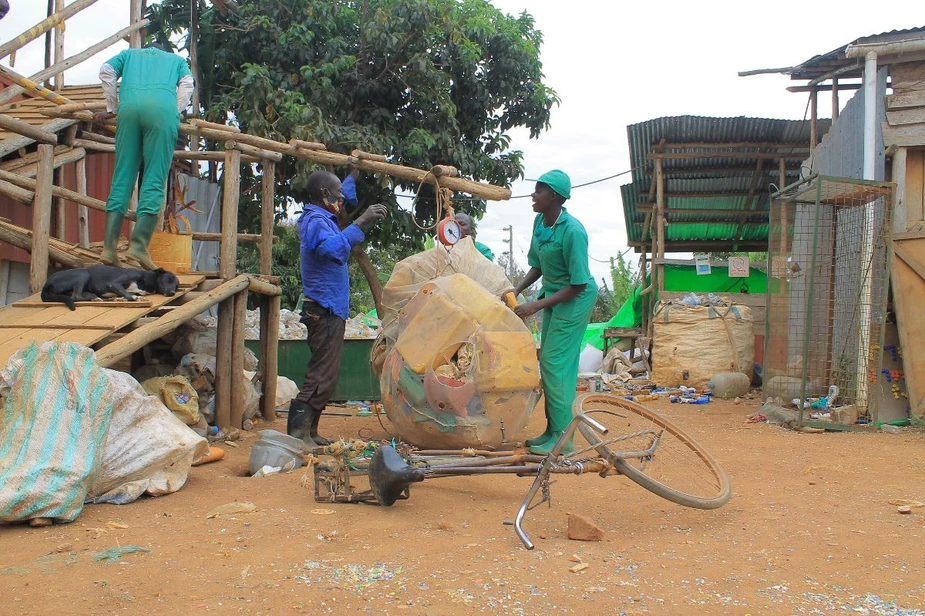
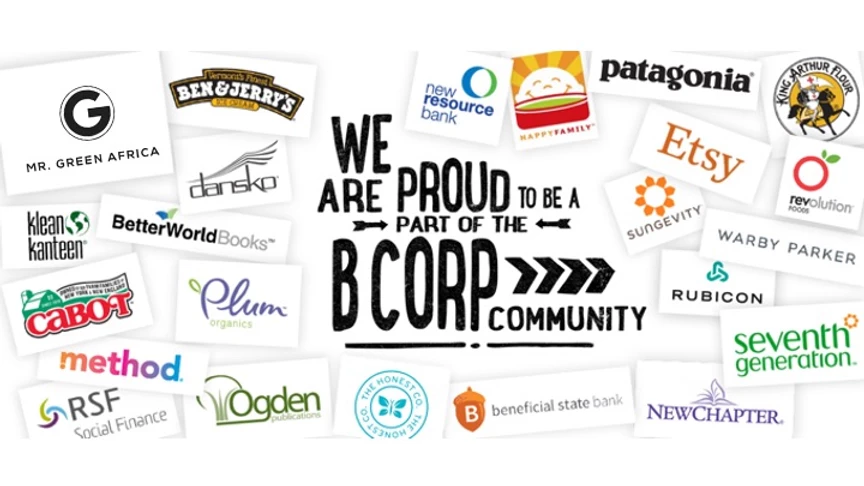
 At the clothing bank, they believe that becoming a self-employed business owner is something everyone can do, irrespective of their education levels and resources, as long as they are self-motivated and well supported (mentally and emotionally). They have developed a holistic eco-system, which successfully engages families living in poverty to chart a path out of poverty. Their projects have been changing lives for the past eight years.
At the clothing bank, they believe that becoming a self-employed business owner is something everyone can do, irrespective of their education levels and resources, as long as they are self-motivated and well supported (mentally and emotionally). They have developed a holistic eco-system, which successfully engages families living in poverty to chart a path out of poverty. Their projects have been changing lives for the past eight years.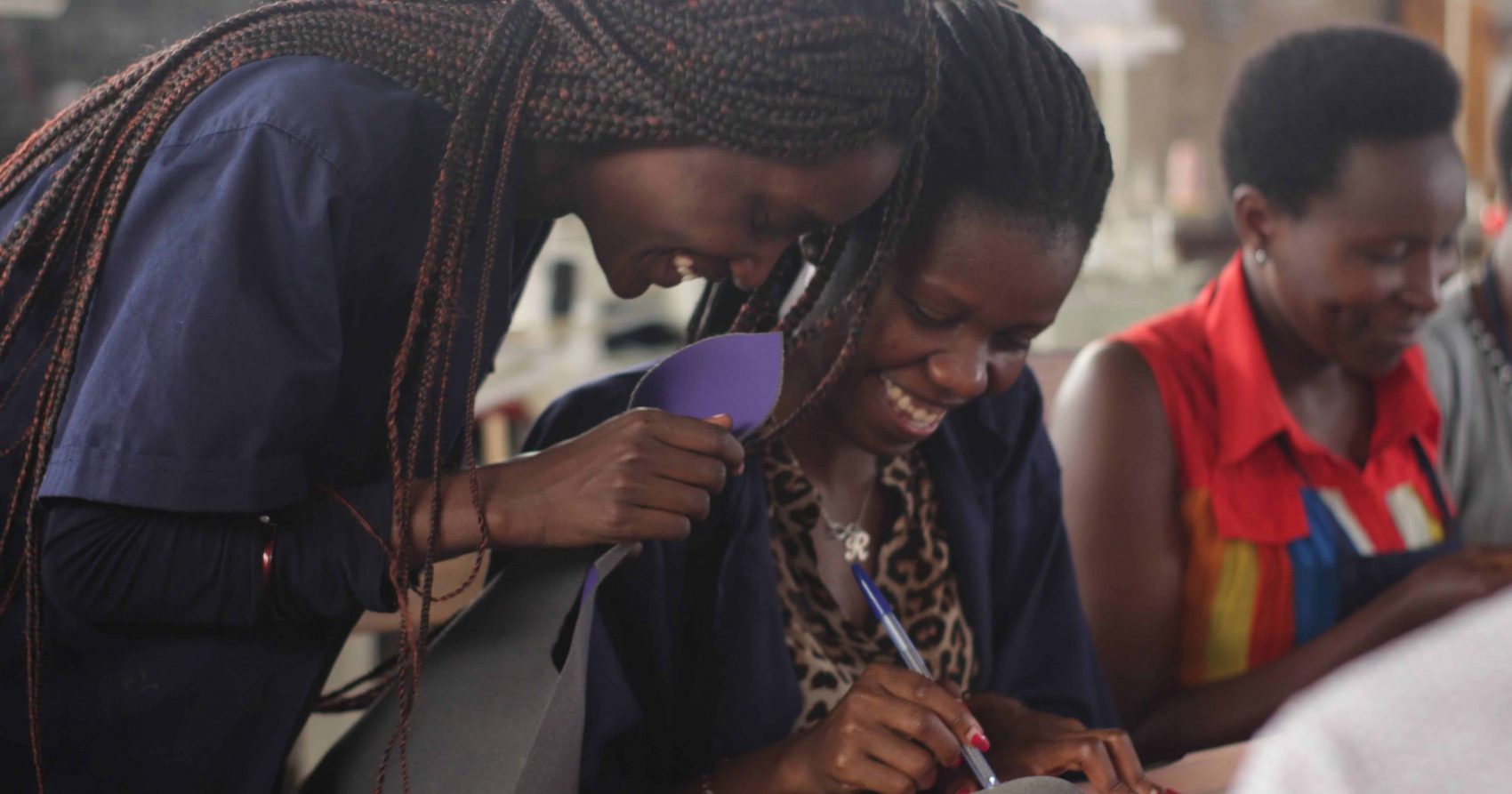 UZURI K&Y is an African inspired shoe brand and manufacturer established in Rwanda since 2013. The company was founded by two women entrepreneurs (Kevine & Ysolde) who met at University while studying Creative Designs. Furthermore, the two young women simply believed that it would ideal to gather knowledge and create a common mission.
UZURI K&Y is an African inspired shoe brand and manufacturer established in Rwanda since 2013. The company was founded by two women entrepreneurs (Kevine & Ysolde) who met at University while studying Creative Designs. Furthermore, the two young women simply believed that it would ideal to gather knowledge and create a common mission.
 Kolics produces hand-made shoes from repurposed materials. They sell their shoes under the brand name Koliko Wear. Koliko Wear shoes, for example, are made with materials such as second-hand jeans, pieces of excess fabric from local seamstresses, flour sacks from bakeries and waste car tyres. They also upcycle used footwear into new designs. Because of their approach
Kolics produces hand-made shoes from repurposed materials. They sell their shoes under the brand name Koliko Wear. Koliko Wear shoes, for example, are made with materials such as second-hand jeans, pieces of excess fabric from local seamstresses, flour sacks from bakeries and waste car tyres. They also upcycle used footwear into new designs. Because of their approach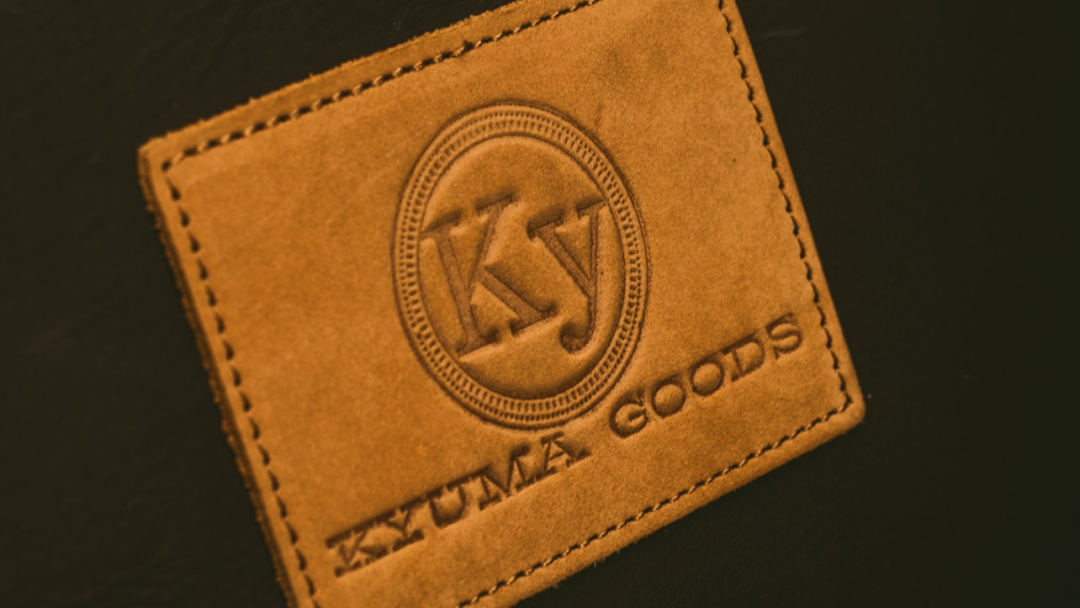 In 2014 Kyuma Goods started by collecting discarded hides from farms and slaughterhouses to produce leather for footwear. Next, they began to partner with communities affected by drought by engaging women and young people to collect discarded waste cattle hides. They developed a 21-day training programme for collectors on how to collect and preserve the hides using natural techniques. This minimises air pollution and ensures that the hides are in good condition when Kyuma Goods collects them.
In 2014 Kyuma Goods started by collecting discarded hides from farms and slaughterhouses to produce leather for footwear. Next, they began to partner with communities affected by drought by engaging women and young people to collect discarded waste cattle hides. They developed a 21-day training programme for collectors on how to collect and preserve the hides using natural techniques. This minimises air pollution and ensures that the hides are in good condition when Kyuma Goods collects them.
